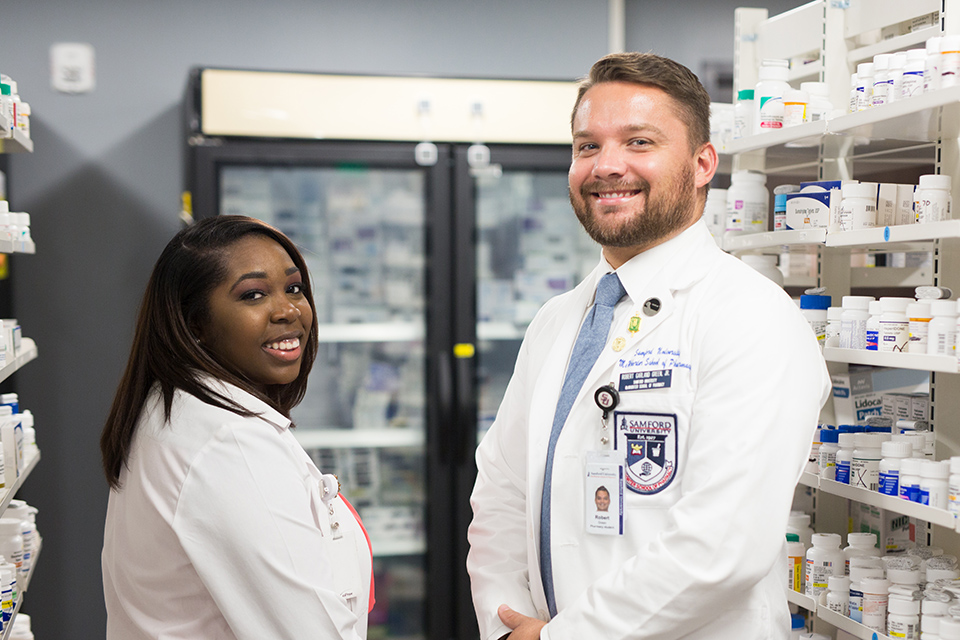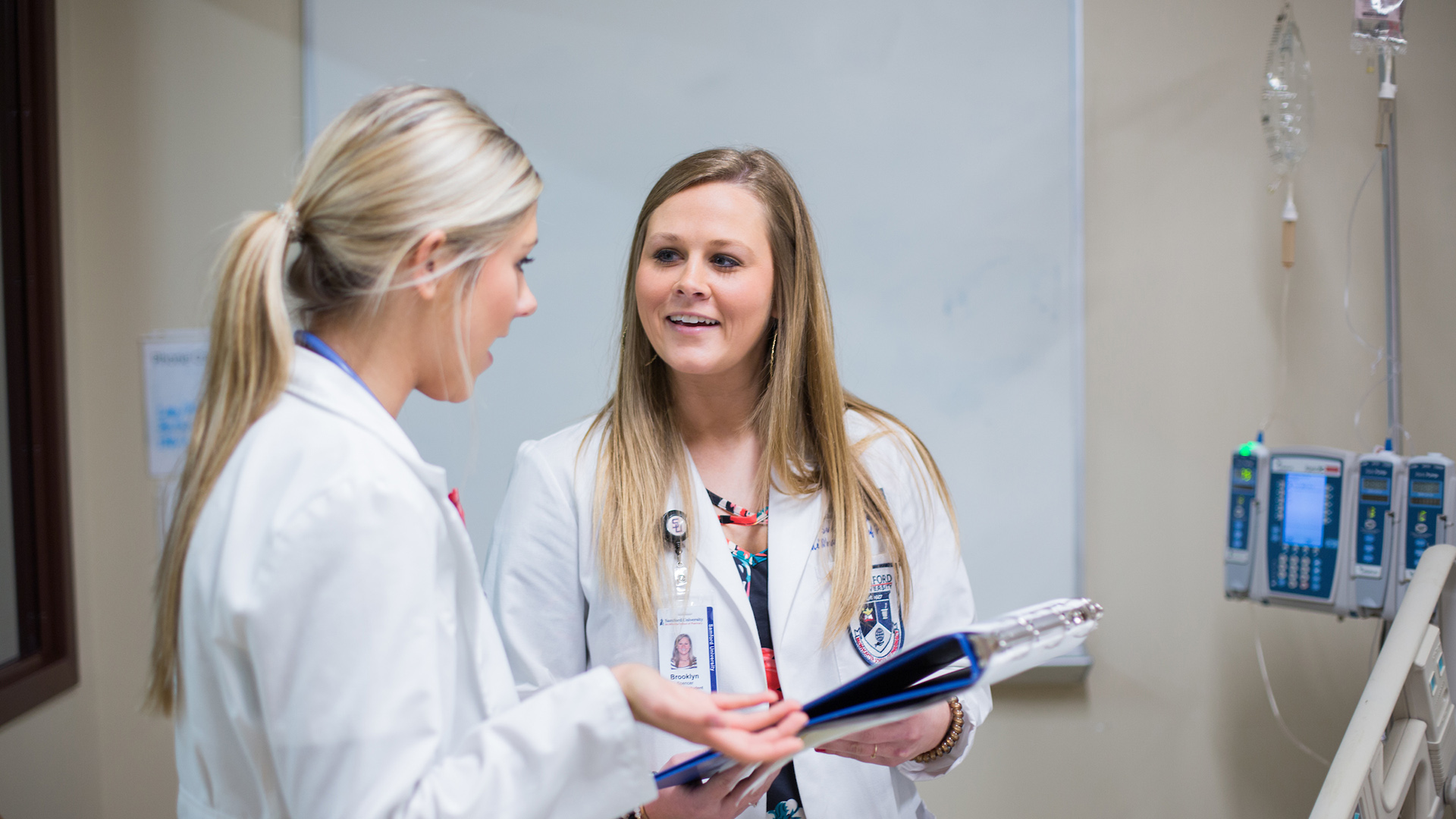“All pharmacy schools have lectures. All schools have experiential learning. But we’re taking our curriculum to the next level,” said Michael Crouch, dean of Samford University’s McWhorter School of Pharmacy. “Pharmacists have an expanding role in our evolving health care system, and our new curriculum will uniquely prepare students to thrive in this environment.”
In 2017, McWhorter School of Pharmacy began the enormous task of transforming its Doctor of Pharmacy curriculum. Faculty are now in the final year of development, working to approve the new curriculum for the 2020 academic year.
“We didn’t start this process because we saw red flags,” said Danielle Cruthirds, professor and chair of the school’s curriculum transformation task force. “Our graduates have strong outcomes, but it’s easy to look around and realize the role of a pharmacist is expanding.”
The idea of change was also motivated by the establishment of Samford’s College of Health Sciences. “Since we developed our current curriculum, we’ve moved into the College of Health Sciences facilities with its Experiential Learning and Simulation Center,” said Mike Kendrach, professor and associate dean for academic affairs. “We want to take advantage of these new resources, especially simulation. It has created more opportunities than ever for interprofessional education.”

With a vision cast, Crouch assembled the curriculum transformation task force in 2017 to facilitate the process, comprised of faculty from the school’s two departments: Pharmacy Practice and Pharmaceutical, Social and Administrative Sciences. “As we started the process, intuitively, you think that you should begin with a brand-new student and work forward,” Cruthirds said. “But our process was different. We started by defining the qualities of a great pharmacist—the qualities our graduates need to possess—and worked backward.”
The task force developed the curriculum’s skeleton, defining the structure of each semester, and then the school’s curriculum committee and faculty began to work on the specifics. “The curriculum committee was tasked with developing what each year will look like in terms of the classes students will take and competencies these courses will address,” said John Arnold, professor and chair of the curriculum committee. “Our work began to add flesh to the bones.”
As a part of this work, they established themes for the curriculum’s first three didactic years:
- Year One: Foundational Knowledge and Practice
- Year Two: Essentials of Practice Care and Problem-solving
- Year Three: Patient Care Practice and Clinical Decision-making
Within these three years, the curriculum will allow for midsemester assessments, or readiness weeks. “After the first six weeks, we’ve designated time for students to apply the knowledge they’ve learned and the skills they’ve developed.” Arnold said. “At this midpoint, they may not have it, but it will give them experience so we can use the rest of the semester to address how they can improve.”
The fourth year of the program will continue to consist of advanced pharmacy practice experiences, but these clinical rotations will start earlier allowing time for students to return to campus to learn from each other’s experiences.
While the curriculum is changing, Crouch notes the core remains. “Our curriculum is and always will be the integration of science and practice,” he said. “But this new curriculum will engage students like no other program, empower them to be confident problem solvers, and transform them into practice and team ready pharmacists.”

Where You Get Your PharmD Matters
At McWhorter School of Pharmacy, we believe a career in pharmacy is more than a job—it’s a deeper calling to serve your neighbors, your community and the world. Our goal is to provide you with a unique and individualized education that allows you to graduate prepared to answer your calling to care for others through pharmacy.

